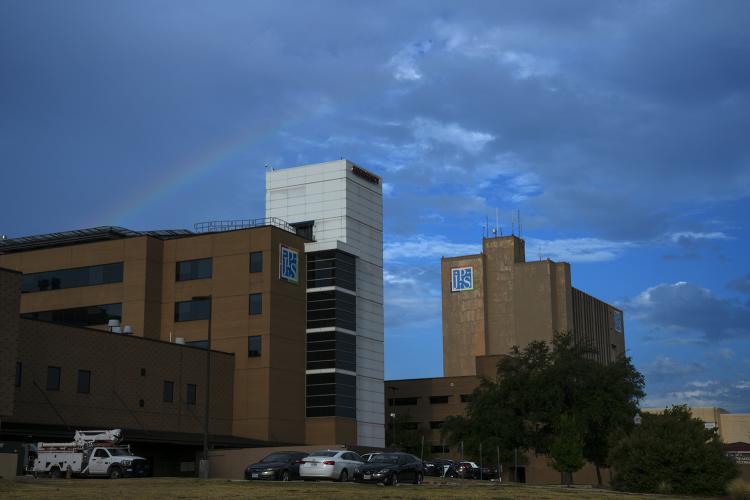
Controlling mental health issues is key to making your body healthy. That’s why JPS Health Network has dedicated itself to sending cases of depression into remission.
“Depression is a horrible thing,” said Dr. Nadia Alawi-Kakomanolis, Vice Chief of Primary Care Operations at JPS Health Network and Interim President of Acclaim Physician Group. “It’s always been a problem, but with COVID-19 and the isolation and anxiety it’s caused over the past year, depression rates have skyrocketed.”
When patients are suffering from depression, it can make it much more difficult – or even impossible – to fix any other issues.
“Depression might make you eat all the time or it may make you not be able to eat at all,” Alawi-Kakomanolis said. “It might make you not be able to sleep, or it might make you feel like you can’t get out of bed. But what it always does, one way or another, is that it makes you not care anymore. You don’t want to bother to eat right, you don’t take your blood pressure medication or your diabetes medication anymore. It’s not because you are trying to kill yourself. It’s because you just don’t care anymore and feel like it doesn’t make a difference.”
"You can't treat the body without addressing the mind and the spirit. We're seeking true total health. Our Ability to recover is incredible."
JPS leaders have made it their goal for 2021 to go on the offensive against depression, seeking out cases and working out plans to treat it when it’s discovered. Using a screening test called PHQ-9, patients are able to be assessed for their level of depression and then are treated accordingly, according to Zelia Baugh, Executive Vice President of Behavioral Health at JPS.
“Based on a person’s PHQ score, we can determine if a patient is depressed, if they’re getting better or worse, or if they’re in or out of remission,” Baugh said. “A score of five or less on the test is an indication that they’re in remission.”
Depression remission, similar to when doctors refer to cancer cases being in remission, means that the condition is under control and the patient is doing well.
The number nine in the name of the test refers to the number of questions involved, according to Alawi-Kakomanolis.
“It’s just nine easy questions,” Alawi-Kakomanolis said. “They’re very simple and nothing that is going to be embarrassing or traumatizing. They include whether or not the patient is taking their medication, about their eating habits, or if they’re getting sleep. We also ask if they think about harming themselves or someone else.”
For those who are struggling with depression, Baugh said immediate help is on the way. The EPIC patient information management system is preprogrammed with a variety of intervention options. For those battling depression the hardest, their cases will be prioritized so they don’t have to make an appointment and then wait.
Baugh said efforts to proactively identify and assess depressed patients will focus on people in the JPS Connections Program. The program supports patients with socio-economic issues that make it tough for them to pay medical bills and potentially to afford to be able to live on their own. When a patient in need of assistance is recognized, the EPIC patient information management system automatically provides caregivers with a menu of interventions to assist.
“We’re closing the loop,” Baugh said. “We’ll be able to see if their prescriptions are being filled and picked up. If they’re not, a social worker can ask them why. Is it because they don’t have transportation? Maybe they can’t afford it. We can’t afford to let those things stand in the way of getting people better and, if we know they’re having a problem, we can help people work around it.”
Baugh said patients will be seen at least every three months to make sure they’re staying on the path to mental wellness. Five dedicated Transition Coordinators, social workers who will monitor at-risk depression cases, have been hired.
While it might seem like a daunting situation to treat depression, Alawi-Kakomanolis said the first step is usually the most difficult one.
“There are a lot of things we can do to help people,” according to Alawi-Kakomanolis. “It could be as simple as giving them some medication to take. But we have to be able to identify the problem and get patients to the right situation before we can help them.”
Baugh agreed.
“You can’t treat the body without addressing the mind and the spirit,” Baugh said. “We’re seeking true total health. Our ability to recover is incredible, but COVID-19 has had a tremendous impact on our lives. We need to recognize that so we can move forward.”
